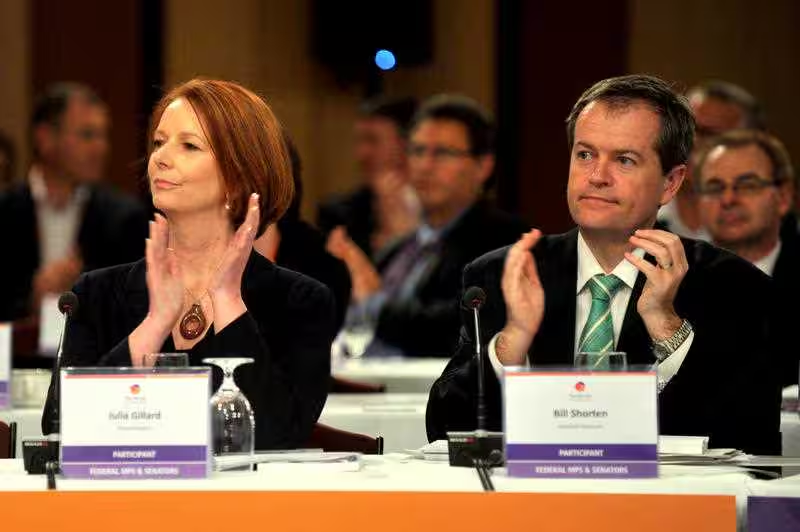In early 2012, I was invited to a lunch meeting with then-Minister Bill Shorten at Le Meridien in New Delhi. It was one of those events where everyone in the room was genuinely excited to speak with a rising star in Australian politics about India-Australia relations.
But as we waited—and waited—for the Minister to join us, lunch was served without him. Shorten was in the same hotel, just metres away, on the same floor. I could see him pacing on the phone, locked in conversation. Eventually, we were told he was dealing with an urgent “domestic issue.” It wasn’t until hours later that the real story emerged: a broken Kirribilli Agreement. Kevin Rudd had just challenged Julia Gillard for the prime ministership—again.


It was my first real-world brush with the peculiar, ruthless sport that is Australian political knifing. What unfolded back in Canberra that day wasn’t just another leadership spill; it was a crescendo in what remains the most bitter rivalry in modern Australian political history.
No doubt, whenever political knifing is mentioned, the Rudd-Gillard years spring to mind—etched into our national memory like a Shakespearean tragedy performed with PowerPoint slides.
This is not an isolated story. Leadership spills are a fixture in Australian politics, to the point where voters almost expect their prime ministers to be rolled mid-term. Since 2007, no Australian prime minister has completed a full term without facing internal threats or being ousted by their own party.


In fact, the original Kirribilli Agreement is perhaps the most infamous case of political betrayal in Australian history. In 1988, then–Prime Minister Bob Hawke promised his Treasurer, Paul Keating, that he would step down after the 1990 election. When he failed to do so, Keating launched two leadership challenges—losing the first in June 1991 but winning the second in December that year. The personal bitterness between Hawke and Keating is said to have lingered for decades.


In December 2009, Tony Abbott ousted Malcolm Turnbull as Liberal leader over a disagreement on climate policy—specifically, Turnbull’s support for Rudd’s Carbon Pollution Reduction Scheme. Abbott then led the Coalition to victory in 2013. But in a poetic reversal, Turnbull returned the favour in 2015, ousting Abbott as Prime Minister in a leadership spill, citing a need for “economic leadership” and a more “respectful” style of government.
Then came the knifing of Turnbull in 2018—a masterclass in coordinated destabilisation. Peter Dutton, backed by the conservative wing of the Liberal Party, launched a leadership challenge. Although Turnbull survived the first spill, mounting pressure—including resignations from Cabinet—forced a second vote, which Scott Morrison ultimately won.
To an outsider, Australian political history reads like a ledger of broken promises and backroom deals. The knife, once drawn, rarely returns to its sheath without tasting blood. And though these power plays are often framed as necessary “course corrections,” they leave behind a trail of disillusionment—not just among voters, but also among those of us who once believed that leadership meant vision, not vengeance.

It is reported that in 2013, Gillard reportedly knew that Shorten was preparing to desert her and shift his support to Rudd—up to two weeks before she ultimately lost the leadership on 26 June.
The 2015 ABC documentary series, The Killing Season: The Great Moral Challenge, captures a sombre Rudd reflecting on the events surrounding his 2012 ousting. When asked, “What is it that troubles you?” Rudd replies with quiet gravity: “Well, to recall these difficult times is just painful. And the thing that is most painful through it all is just the active sense of betrayal—betrayal by people who were very close to you, and betrayal by people who you thought you could trust.”
That day in New Delhi, we were supposed to talk about building bridges between India and Australia. Instead, I got a front-row seat to the real story—one that wasn’t on the agenda but revealed far more about the soul of Australian politics than any prepared speech ever could.
Support our Journalism
No-nonsense journalism. No paywalls. Whether you’re in Australia, the UK, Canada, the USA, or India, you can support The Australia Today by taking a paid subscription via Patreon or donating via PayPal — and help keep honest, fearless journalism alive.






